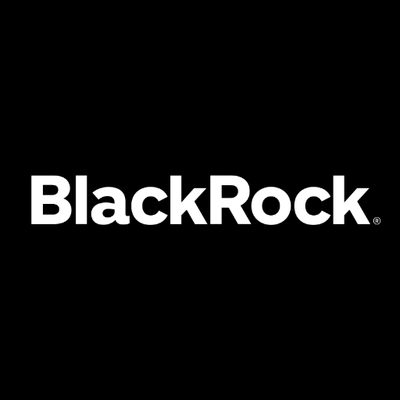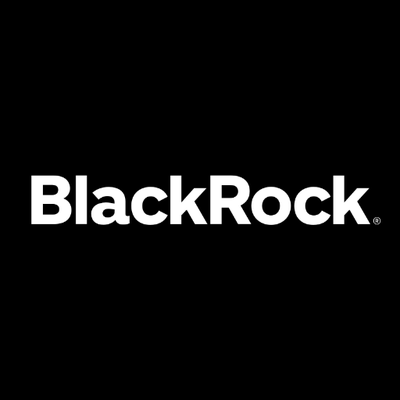Blackrock Smaller Companies Trust plc (LON:BRSC) has provided the following portfolio update:
All information is at 31 July 2020 and unaudited.
Performance at month end is calculated on a capital only basis.
| One month % | Three months % | One year % | Three years % | Five years % | |
| Net asset value* | -0.2 | 4.8 | -8.6 | -2.4 | 29.6 |
| Share price* | -4.4 | -6.9 | -12.7 | 1.4 | 31.1 |
| Numis ex Inv Companies + AIM Index | 2.2 | 7.4 | -10.6 | -16.5 | -0.8 |
*performance calculations based on a capital only NAV with debt at par, without income reinvested. Share price performance calculations exclude income reinvestment.
Sources: BlackRock and Datastream
| At month end | |
| Net asset value Capital only(debt at par value): | 1,359.83p |
| Net asset value Capital only(debt at fair value): | 1,338.79p |
| Net asset value incl. Income(debt at par value)1: | 1,363.33p |
| Net asset value incl. Income(debt at fair value)1: | 1,342.29p |
| Share price | 1,220.00p |
| Discount to Cum Income NAV (debt at par value): | 10.5% |
| Discount to Cum Income NAV (debt at fair value): | 9.1% |
| Net yield2: | 2.7% |
| Gross assets3: | £735.3m |
| Gearing range as a % of net assets: | 0-15% |
| Net gearing including income (debt at par): | 7.2% |
| 2019 Ongoing charges ratio4: | 0.7% |
| Ordinary shares in issue5: | 48,829,792 |
- includes net revenue of 3.50p.
- Yield calculations are based on dividends announced in the last 12 months as at the date of release of this announcement, and comprise the first interim dividend of 12.80 pence per share (announced on 5 November 2019, ex-dividend on 14 November 2019) and the second interim dividend of 19.70 pence per share (announced on 3 June 2020, ex-dividend on 11 June 2020).
- includes current year revenue.
- As reported in the Annual Financial Report for the year ended 28 February 2019 the Ongoing Charges Ratio (OCR) was 0.7%. The OCR is calculated as a percentage of net assets and using operating expenses, excluding performance fees, finance costs and taxation.
- excludes 1,163,731 shares held in treasury.
| Sector Weightings | % of portfolio |
| Industrials | 29.6 |
| Financials | 20.6 |
| Consumer Services | 16.8 |
| Consumer Goods | 10.5 |
| Technology | 8.0 |
| Basic Materials | 5.5 |
| Health Care | 4.7 |
| Oil & Gas | 2.2 |
| Telecommunications | 1.1 |
| Materials | 1.0 |
| —– | |
| Total | 100.0 |
| ===== |
| Ten Largest Equity Investments | |
| Company | % of portfolio |
| YouGov | 2.4 |
| IntegraFin | 1.9 |
| Avon Rubber | 1.9 |
| Breedon | 1.8 |
| Games Workshop | 1.8 |
| Serco Group | 1.8 |
| Stock Spirits Group | 1.7 |
| Pets at Home | 1.7 |
| 4imprint Group | 1.6 |
| Qinetiq Group | 1.6 |
Commenting on the markets, Roland Arnold, representing the Investment Manager noted:
During July the Company’s NAV per share fell by -0.2% to 1359.83p on a capital only basis, underperforming our benchmark index which returned 2.2%; for comparison the FTSE 100 Index fell by -4.4% on a capital only basis.
Equity market volatility remained high in July as concerns of further outbreaks of the coronavirus, and therefore the severity of the economic impact, continued to weigh on investor sentiment. There was clear dispersion between the UK large cap index, which finished the month in negative territory, and smaller companies which rose. In part this was due to US Dollar weakness and the translational impact on large cap overseas earners, while the outperformance of many highly leveraged miners on the back of continued commodity price strength, help to lift the small cap index.
The Company’s NAV performance failed to keep pace with the rising market during the month. At a sector level performance was impacted by our underweight to value areas of the market, notably the mining sector, given the share price strength in this area of the market as discussed above. This is a sector where we often struggle to find companies that meet our stringent investment criteria. We also have the issue that a number of the companies in the sector have a market capitalisation that is too large for us to be able to invest in, despite being a part of our index. Positioning within Consumer Services also caused a drag to performance. Despite pubs reopening in July, Fuller Smith & Turner, JD Wetherspoons and City Pub Company, were all detractors to performance. In our mind these businesses have dealt with the challenges of the pandemic well; having raised money, defended their balance sheets, cut costs, and are now performing well since reopening, they are generating cash and covering costs. What’s more, it is these well managed companies that we believe will see their competitive positions enhanced once we emerge from this crisis. However, the shares are clearly not reflecting this long-term opportunity, as investors are pre-occupied with the near-term lockdown risk. We therefore continue to believe that many of these shares are overplaying the downside risks, and are confident that there is long-term value in these businesses. For example, the market cap of Fullers is below the value of its freehold property, and we remain convinced that it is only a matter of time before the market appreciates this.
The largest positive contributor was Cello Health which soared in response to the proposed takeover by private equity firm Arsenal Capital Partners. Pharmaceuticals business Ergomed rallied in response to a positive trading update where the business reported strong revenue growth in the first half with upgrades to forward guidance. The order book has expanded since the beginning of the year, providing high visibility of earnings through the remainder of the year, while the company has maintained a strong balance sheet with net cash. Shares in Pets at Home rose in response to a strong trading update which highlighted strong growth in online orders, which helped to mitigate the impact of mandated store closures. Management also highlighted tangible signs of increased demand for pet ownership, as a result of changing working practices, which bodes well for growth in Pets at Home’s end markets.
The current environment continues to present a number of challenges as the outlook remains highly uncertain and investors are inconsistent on how they are pricing coronavirus risks. For example, there are many areas of the market, such as consumer stocks, which are trading at valuations that would imply that a second lockdown is a certainty, meanwhile there are other areas of the market that are trading as though it this will not happen. For example, the pubs, and also some of our engineers are seeing a strong recovery to now being almost flat year-on-year at current run rates, yet the share prices tell a different story.
We therefore remain confident in our strategy on a medium-term view. Market volatility presents us with a fantastic investment opportunity. The Company’s investment strategy is focussed on quality growth investments in smaller companies, a style that has demonstrably worked for the long term, and historically periods of sudden underperformance, such as this, have proven to be excellent investment opportunities.
1Source: BlackRock as at 31 July 2020
24 August 2020
To learn more about the BlackRock Smaller Companies Trust plc please follow this link: blackrock.com/uk/brsc






































